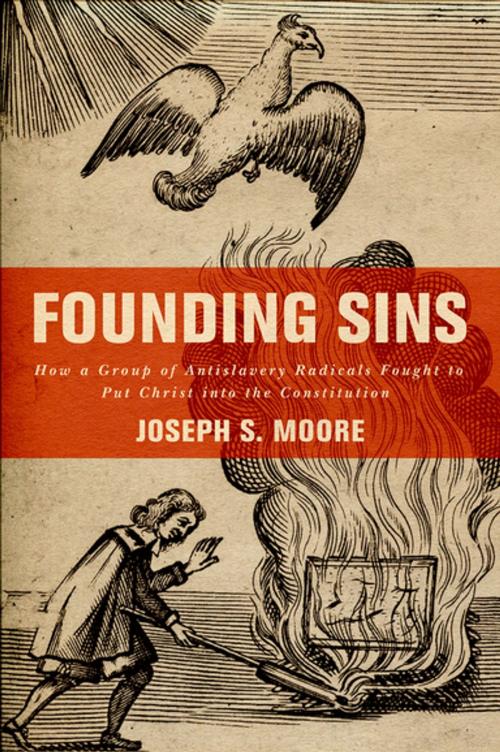Founding Sins
How a Group of Antislavery Radicals Fought to Put Christ into the Constitution
Nonfiction, Religion & Spirituality, Christianity, Church, Church & State, Church History, History, Americas, United States, Revolutionary Period (1775-1800)| Author: | Joseph S. Moore | ISBN: | 9780190269265 |
| Publisher: | Oxford University Press | Publication: | September 15, 2015 |
| Imprint: | Oxford University Press | Language: | English |
| Author: | Joseph S. Moore |
| ISBN: | 9780190269265 |
| Publisher: | Oxford University Press |
| Publication: | September 15, 2015 |
| Imprint: | Oxford University Press |
| Language: | English |
The Covenanters, now mostly forgotten, were America's first Christian nationalists. For two centuries they decried the fact that, in their view, the United States was not a Christian nation because slavery was in the Constitution but Jesus was not. Having once ruled Scotland as a part of a Presbyterian coalition, they longed to convert America to a holy Calvinist vision in which church and state united to form a godly body politic. Their unique story has largely been submerged beneath the histories of the events in which they participated and the famous figures with whom they interacted, making them the most important religious movement in American history that no one remembers. Despite being one of North America's smallest religious sects, the Covenanters found their way into every major revolt. They were God's rebels--just as likely to be Patriots against Britain as they were to be Whiskey Rebels against the federal government. As the nation's earliest and most avowed abolitionists, they had a significant influence on the fight for emancipation. In Founding Sins, Joseph S. Moore examines this forgotten history, and explores how Covenanters profoundly shaped American's understandings of the separation of church and state. While modern arguments about America's Christian founding usually come from the right, the Covenanters have a more complicated legacy. They fought for an explicitly Christian America in the midst of what they saw as a secular state that failed the test of Christian nationhood. But they did so on behalf of a cause--abolition--that is traditionally associated with the left. Though their attempts to insert God into the Constitution ultimately failed, Covenanters set the acceptable limits for religion in politics for generations to come.
The Covenanters, now mostly forgotten, were America's first Christian nationalists. For two centuries they decried the fact that, in their view, the United States was not a Christian nation because slavery was in the Constitution but Jesus was not. Having once ruled Scotland as a part of a Presbyterian coalition, they longed to convert America to a holy Calvinist vision in which church and state united to form a godly body politic. Their unique story has largely been submerged beneath the histories of the events in which they participated and the famous figures with whom they interacted, making them the most important religious movement in American history that no one remembers. Despite being one of North America's smallest religious sects, the Covenanters found their way into every major revolt. They were God's rebels--just as likely to be Patriots against Britain as they were to be Whiskey Rebels against the federal government. As the nation's earliest and most avowed abolitionists, they had a significant influence on the fight for emancipation. In Founding Sins, Joseph S. Moore examines this forgotten history, and explores how Covenanters profoundly shaped American's understandings of the separation of church and state. While modern arguments about America's Christian founding usually come from the right, the Covenanters have a more complicated legacy. They fought for an explicitly Christian America in the midst of what they saw as a secular state that failed the test of Christian nationhood. But they did so on behalf of a cause--abolition--that is traditionally associated with the left. Though their attempts to insert God into the Constitution ultimately failed, Covenanters set the acceptable limits for religion in politics for generations to come.















